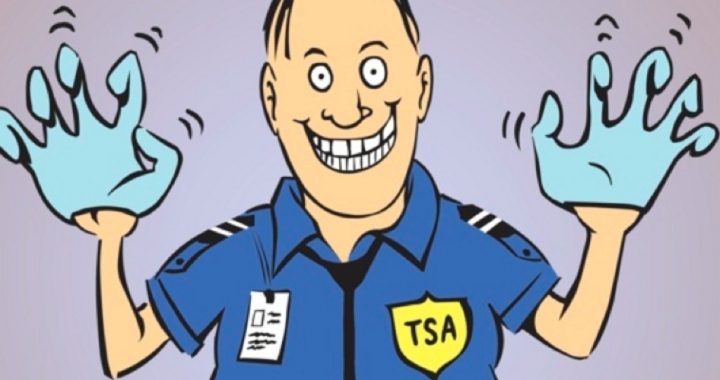
There was a time when the biggest complaint most Americans had about government’s groping hands concerned the tax collector’s hands in their wallets and bank accounts. But that was before 9/11 changed everything and technological progress made it possible for Transportation Security Administration agents at our nation’s airports to select passengers for a more intimate kind of touching, concerning things more personal than wallets, driver’s licenses, and Social Security numbers.
“There are far too many federal hands on people’s private parts in airports,” former TSA Agent Jason Edward Harrington wrote in an article appearing online at the website of Time magazine. The occasional scandal that arises when agents are caught crossing the line in a “pat down,” ostensibly in search of real or potential weapons, obscures the fact that such violations are not rare, but routine, Harrington said. He cites the recent reports of TSA agents fired over a groping scheme at Denver International Airport as an example.
“Amid all the jokes in comment sections, it’s easy to forget that the groping of these dozen or more male passengers by two conspiring TSA screeners is sexual assault, plain and simple,” Harrington wrote. “And while it’s easy to focus all the blame on the two unsavory screeners who are now no longer with the agency, perhaps the bigger issue here is a systemic one,” he added.
In Denver, NBC News reported, two airport screeners were fired for allegedly conspiring to allow the male screener to pat down men he found attractive. The male agent reportedly would signal to a female screener when he saw a male passenger he thought attractive approach her station. She would falsely enter the sex of the passenger as female, causing the full-body scanner to report an anomaly that called for a pat down of the passenger’s groin area, Denver police reported, following an investigation. TSA officials referred the matter to the police after receiving a tip regarding the scheme.
A spokeswoman for the Denver district attorney said charges for “unlawful sexual contact” cannot be filed unless a violated passenger comes forward to make the accusation. The case is being reviewed for other possible charges, she said.
“These alleged acts are egregious and intolerable,” according to a statement issued by the Transportation Security Administration. The two officers have been fired and all allegations of misconduct “are thoroughly investigated by the agency. And when substantiated, employees are held accountable,” the TSA said.
Yet Harrington contends that in his six years with the agency, “the leveraging of rules and surveillance tools to abuse passengers was a daily checkpoint occurrence. Has the TSA screener searching your luggage suddenly decided to share with you the finer points of official bag-search procedure just as your final boarding call is being announced? There’s a good chance that he or she just doesn’t like you,” he wrote. “Or in some cases, as we’ve seen, it may be that the screener finds you attractive and wants to use the TSA rules as an excuse to get his or her hands on you.”
What’s more, wrote Harrington, the full-body scanners that millions of people pass through at airports each day “are practically useless. The TSA, in its rush to replace the controversial ‘nude’ radiation scanners that they phased out in 2013, swapped out one poorly functioning line of machines for another. The current millimeter wave scanners, with their outrageous false-positive rates, regularly cause unnecessary pat-downs: The agent running his or her hands over you after you pass through the scanner is almost never doing it for a good reason.”
While metal detectors are still capable of alerting security officials of the presence of the most obvious weapons, an adequate deterrence of a potential terrorist concealing a non-metallic weapon is all the security TSA can or need supply at airports, Harrington maintains. “One or two full-body scanners per terminal, through which the occasional passenger could be randomly directed (alongside passengers on watch-lists), would provide that adequate deterrence,” he wrote. “The vast majority of the traveling public need not pass through a full-body scanner, and need not be groped at all.”
That an agency of the federal government is wasting time, effort and considerable money on procedures and devices that don’t work might strike most Americans as hardly surprising. But the intentional groping of people’s private parts violates laws of decency that even the government recognizes.
Sometimes.



